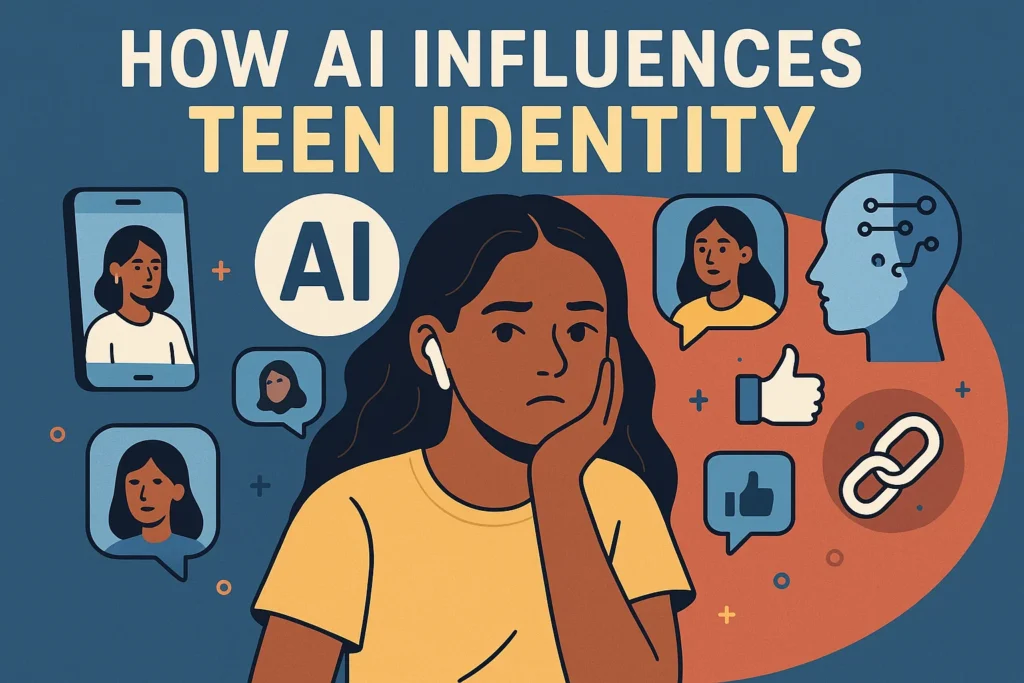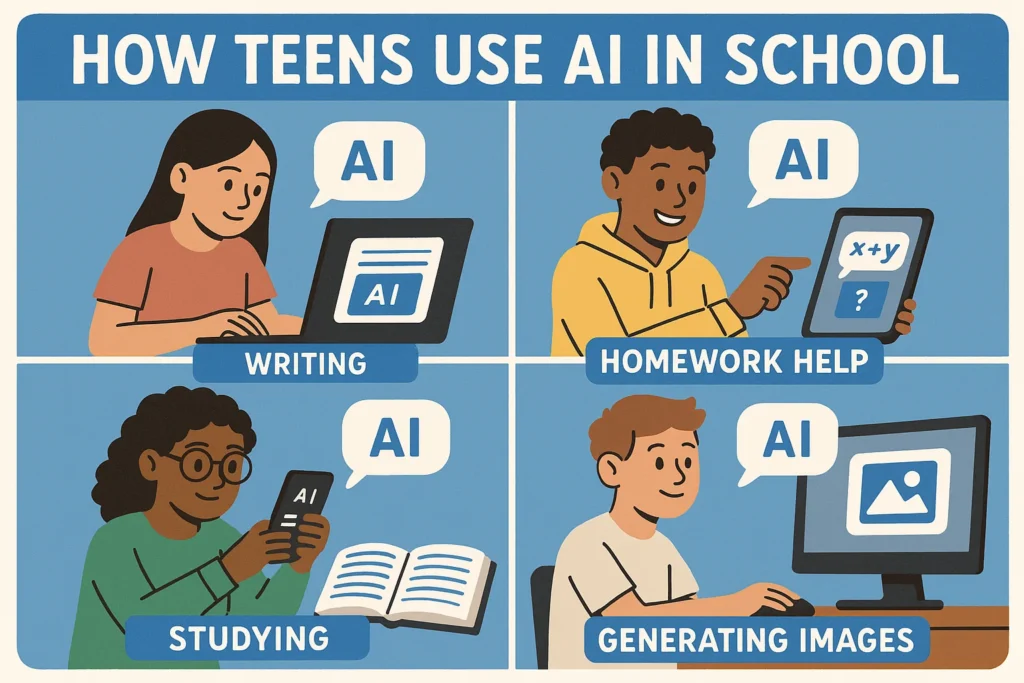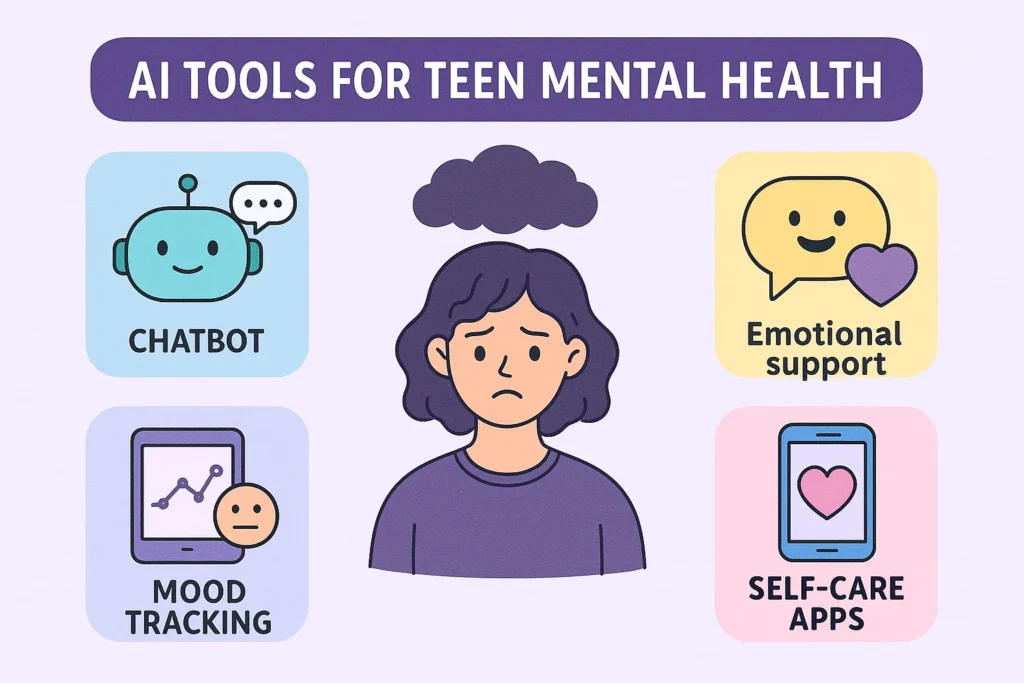💬 Introduction
How AI Influences Teen Identity: In today’s connected world, AI Blogquest.com teen identity more deeply than most parents realize. From personalized social media feeds to virtual role models, artificial intelligence is quietly shaping how teenagers see themselves and the world around them. While AI can inspire creativity and confidence, it also raises serious questions about self-worth, privacy, and authenticity.
🤳 The Digital Mirror Effect
AI-powered recommendation engines like TikTok, Instagram, and YouTube don’t just show content—they mirror a teen’s interests back to them, reinforcing certain ideas, aesthetics, and values. Over time, this creates a “digital reflection” that can either boost self-awareness or narrow one’s sense of identity.
Teens often start to define themselves by what algorithms reward: likes, follows, and shares. This can blur the line between authentic self-expression and algorithm-driven performance.
🧩 7 Ways AI Shapes Teen Identity
1️⃣ AI Filters and Appearance Standards
Augmented reality filters powered by AI can subtly redefine beauty standards. Teens who constantly use filters may feel pressure to look like their “edited selves.”
2️⃣ AI Role Models and Influencers
Virtual influencers like Lil Miquela or AI-powered avatars can inspire fashion and lifestyle trends—but they also create unrealistic expectations of perfection.
3️⃣ Personalized Content Feeds
AI curates social content that reinforces existing beliefs. This can help teens explore niche passions but also isolate them in echo chambers of limited perspectives.
4️⃣ AI-Based Education and Learning Styles
AI tutors and adaptive learning platforms allow teens to learn at their own pace. This fosters confidence and autonomy, encouraging individuality through personalized growth.
5️⃣ AI Companions and Emotional Support
Chatbots designed for companionship can give teens a safe space to vent emotions. However, over-dependence might reduce real-world emotional resilience.
6️⃣ Career Identity Formation
AI tools that suggest career paths can influence how teens view their potential. Data-driven predictions might motivate or unintentionally limit ambition.
7️⃣ Creativity and AI Collaboration
Teens using AI art tools, writing assistants, and music generators are blending human creativity with machine intelligence—forming a new generation of AI-augmented creators.
⚖️ The Double-Edged Sword of AI Identity
AI’s impact on teen identity is both empowering and risky. On one side, it allows personalized expression and mental health insights; on the other, it may lead to comparison anxiety, data manipulation, and reduced self-agency.
Parents and educators must help teens strike a balance between digital self-discovery and authentic human experiences.
💡 Building a Healthy AI Relationship
To ensure AI benefits teen identity development:
-
Encourage offline hobbies and real-world connections.
-
Teach media literacy—understand algorithms, don’t fear them.
-
Promote ethical AI use, including consent and data awareness.
-
Use AI tools that enhance creativity, not just consumption.
🔗 Useful Links
🌐 Resources
❓ FAQs
Q1. How does AI impact a teen’s self-esteem?
AI algorithms can boost or damage self-esteem by controlling the kind of feedback and comparisons teens experience online.
Q2. Are AI influencers harmful?
Not inherently, but they can blur reality and create pressure to emulate impossible standards.
Q3. How can parents guide teens about AI identity?
Encourage conversations about digital self-perception, and remind teens that algorithms don’t define their worth.
Q4. Can AI tools help teens discover who they are?
Yes—AI can assist in exploring interests, talents, and career goals when used thoughtfully and responsibly.



